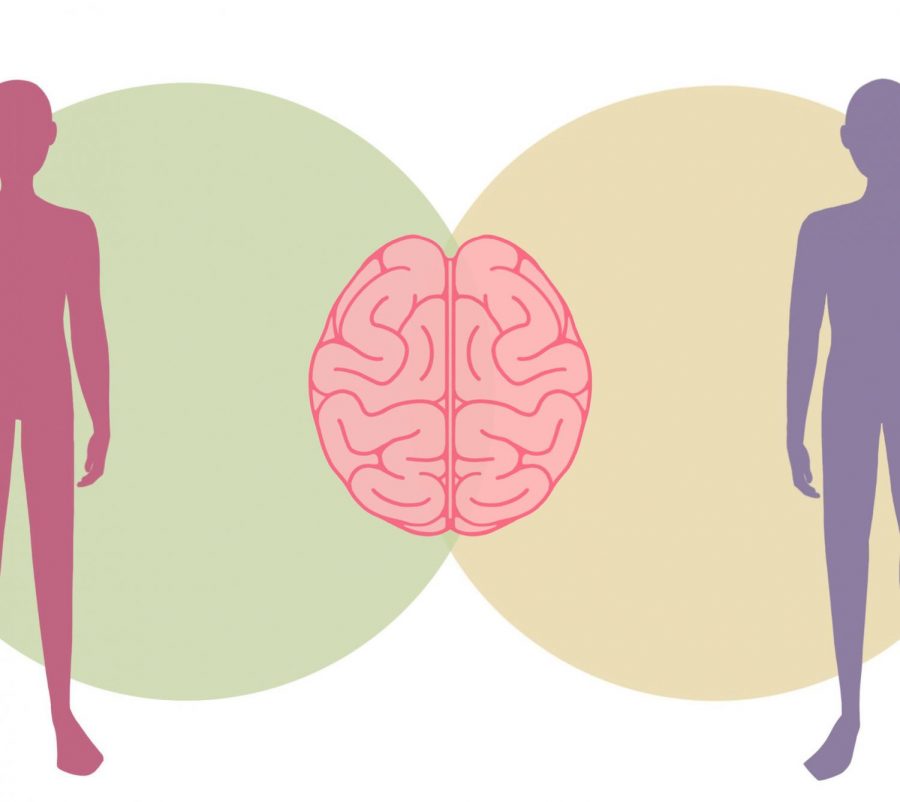Social distancing and its effects on mental health
Staying isolated during the social distancing period can cause anxiety, depression and loneliness
April 13, 2020
Social distancing has been proven to save lives and slow the spread of pandemics like the novel coronavirus. But just as social distancing aids public health, the isolation it entails can also have adverse effects on people, especially those who live alone or who have a history of mental illness.
“Loneliness and isolation are just two possible feelings that may come up for people. For some, depression, anxiety or other mental health symptoms may manifest,” said Julie Mattingly, an assistant professor in the IUS School of Nursing. “The adjustments and disappointments that have come with the movement of classes to a virtual platform for the rest of the semester and the cancellation of some other events are certainly negative effects for the campus and community.”
Personal Counseling Services
Since social distancing can lead to feelings of depression or anxiety, Michael Day, the director of personal counseling at IUS, provided a list of what to look out for if students feel they are experiencing depression or anxiety.
Symptoms of anxiety and depression can include: an increase or decrease in sleep, an increase or decrease in weight, irritability, difficulty concentrating, thoughts of suicide, excessive worry that impairs your ability to function, an increase in the use of alcohol or other drugs and conflict with others.
If students need to reach out to personal counseling services during the social distancing period, they will be able to do so.
“Due to the ongoing nature of the national crisis, Personal Counseling will begin offering services again on March 30 through telehealth services,” Day said.
Personal counseling services will be held through telephone or video conferencing. IUS students can contact personal counseling at 812-941-2244 or sepersco@ius.edu to request a counselor and contact them to arrange services.
Student Perspectives
Hannah Hughes, a sophomore English major, shared how social distancing has affected her and her mental health.
“Social distancing has affected my mental health in some ways and I tend to hyperfocus on flaws in my house, homework and routine,” she said. “That’s been a little hard but this has definitely been teaching me how to work around it.”
Hughes then shared a coping method that she uses quite often.
“I make sure to have a routine,” she said. “I wake up, shower, get ready and I meditate outside when it’s nice and inside when it isn’t.”
Hughes also stated that she spends a lot of time with her pets and fiancé, watches television shows and participates in several different hobbies.
Bailey Black, a sophomore environmental geography major, said social distancing has had an effect on her mental health as well.
“Social distancing has made me feel very depressed since I’m not able to go out and enjoy the day,” she said. “I live in a studio apartment in a basement with one window, so it’s pretty terrible to always be stuck down there.”
Black also shared how concerns related to health have personally affected her and her family.
“I’ve had some bad anxiety since confirmed cases [of COVID-19] have started popping up where I live,” she said. “There’s six people who are quarantined and two confirmed cases where my dad works at a power plant and I’m anxious about how this will affect him.”
Ways to Cope
In addition to feeling both depressed and anxious, Day said social distancing and concerns related to health can also lead to feeling out of control, having difficulty sleeping, experiencing grief and having conflict with others.
“It’s very important to find things you can control,” he said.
One example of something that can be controlled is how time is spent, which could include completing tasks or projects or participating in hobbies that are enjoyable.
“Separate what you can control from what you cannot, and focus on what you can,” he said. “You can wash your hands, practice social distancing, help family and friends in need, manage your reactions and what you do with your time. That is all important and under your control.”
Day recommended students should do what makes them feel safe, challenge themselves to stay in the present, maintain a regular schedule and stay connected with others.
“Humans are social creatures and we crave interaction,” he said.
Day also recommended visiting with friends through social media or chats, writing letters or cards and being creative in ways to share your thoughts and feelings with others.
Day had some advice for students going through this difficult, confusing and upsetting time.
“Take it seriously, but try not to overreact,” he said. “We are all in this situation together and together we will get through this difficult time. “
Day also encouraged students to focus on the positives rather than the negatives.
“Focus on your values, your hopes, your dreams, and the future,” Day said. “Even in terrible times, there is much good and much to be learned.”


